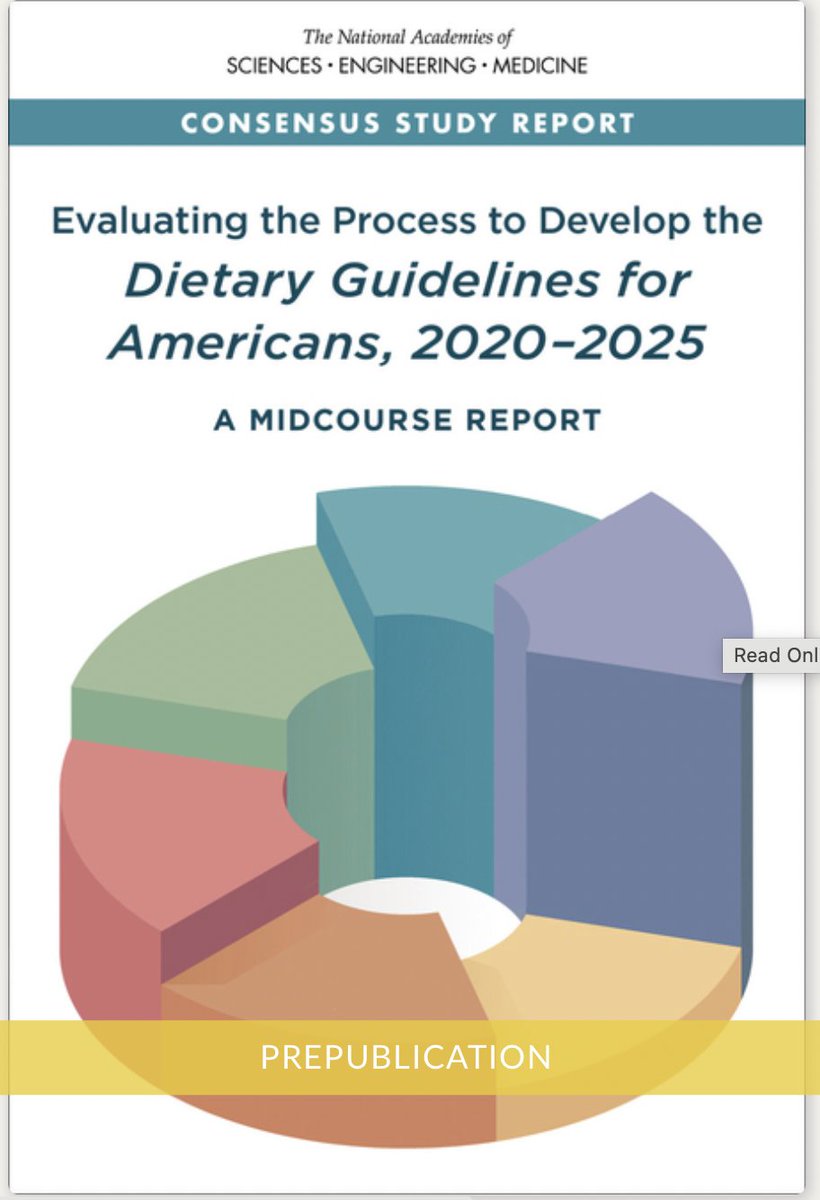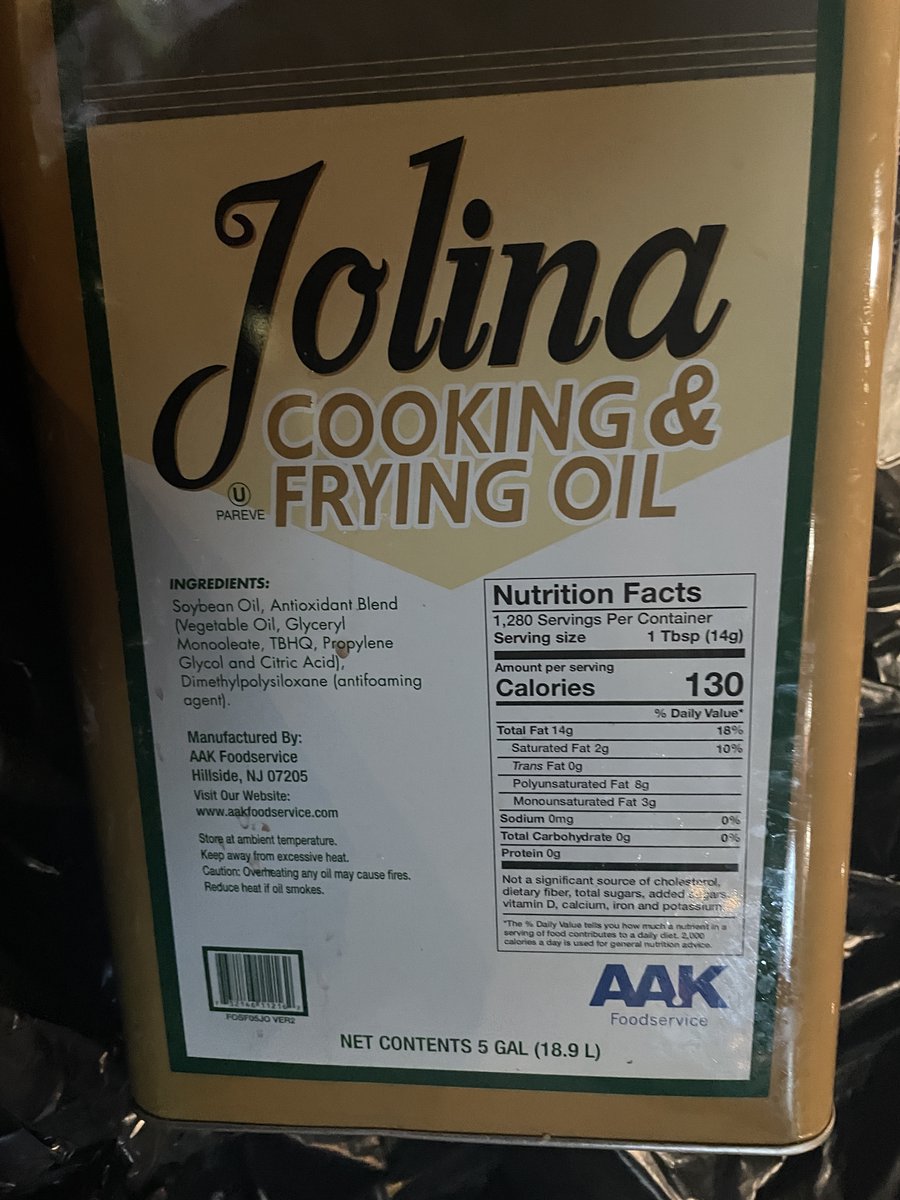
I'm delighted to be an author on this paper, just published, in a journal of the Nat'l Academies of Sciences. A deep-dive analysis of US Dietary Guidelines (#DGA),🧵on findings
academic.oup.com/pnasnexus/adva…
academic.oup.com/pnasnexus/adva…

2020 USDA "Dietary Patterns" (main diet advice) are based on systematic review of science from 2012-13. I.e., 8-9 yrs out of date when 2020 report issued.
Law says guidelines should reflect science that's "current at the time the report is prepared"
Guidelines not in compliance
Law says guidelines should reflect science that's "current at the time the report is prepared"
Guidelines not in compliance
2020 review of Dietary Patterns says it did "evidence scans" of the more current evidence, but this is not a recognized method (u can pubmed search it)
Also, science for majority of Birth-to-24 mo. reviews were only thru mid-July 2016.
Not "current" at time of report in 2020.
Also, science for majority of Birth-to-24 mo. reviews were only thru mid-July 2016.
Not "current" at time of report in 2020.
Many guidelines reviews are done without oversight of expert appointed committee. Even for reviews "by" the committee, USDA staff has taken over almost entire scientific review process, including grading evidence and "developing conclusions"
We argue that this approach is the opposite from what both statute and the regulations on expert committees intend. "The expert committee should be driving the scientific process, not marginalized in a process now overtaken by potentially conflicted federal agencies."
US Guidelines are, by law, supposed to serve the "general public," but now, 60% of public has a diet-related, chronic disease, and guidelines do not review the science on treatment of these diseases.
"The DGA therefore no longer serves the general public"
"The DGA therefore no longer serves the general public"
Guidelines omitted "several bodies of scientific evidence ... from consideration. One of these was the scientific literature on weight loss, a questionable decision given that at least two thirds of Americans are overweight or obese."
Ignoring science on weight loss?
#diabetes
Ignoring science on weight loss?
#diabetes
On cholesterol:
Dietary Guidelines contradicts its own science. 2020 review found “insufficient evidence” to support a relationship between cholesterol in the diet and cholesterol in the blood.
Yet advice was still to keep dietary cholesterol “as low as possible”
Dietary Guidelines contradicts its own science. 2020 review found “insufficient evidence” to support a relationship between cholesterol in the diet and cholesterol in the blood.
Yet advice was still to keep dietary cholesterol “as low as possible”
On low-fat diet:
DGA experts ditched "low-fat" starting in yr2000 it bc “could engender an overconsumption of calories in form of carbohydrates, resulting in the adverse metabolic consequences of high-carb diets.”
Yet 2020 DGA caps fat at 20-35% of calories, aka, a low-fat diet
DGA experts ditched "low-fat" starting in yr2000 it bc “could engender an overconsumption of calories in form of carbohydrates, resulting in the adverse metabolic consequences of high-carb diets.”
Yet 2020 DGA caps fat at 20-35% of calories, aka, a low-fat diet
On saturated fats
'Insufficient rigorous evidence to support limits on sat fats as protection v. heart disease." 2020 DGA review ignored >20 review papers by independent teams of scientists from around the world that have now challenged the scientific basis for caps on these fats
'Insufficient rigorous evidence to support limits on sat fats as protection v. heart disease." 2020 DGA review ignored >20 review papers by independent teams of scientists from around the world that have now challenged the scientific basis for caps on these fats
At least 7 members of DGA expert committees have raised serious concerns about methodology and/or the resulting recommendations. Shortcomings included a reliance on weak evidence, inconsistent inclusion of studies, and an inability to “take the long view” on shifting science
Wrote one former expert committee member: “Despite our evidence-based review lens where we say that food policies are ‘science based,’ in reality we often let our personal biases override the scientific evidence.”
Major methodology problem is that system for grading evidence "contains only vague descriptions about how appointed experts "generally 'might' grade different types of studies" but no specific rules provided, contrary to all established methodologies for science review
Many of our findings similar to those by Nat'l Academies of Sciences, in a review mandated by Congress, with 7 recs to enhance rigor + "improve the credibility of the guidelines."
To" develop a trustworthy DGA, the process needs to be redesigned"
nutritioncoalition.us/2020-dietary-g…
To" develop a trustworthy DGA, the process needs to be redesigned"
nutritioncoalition.us/2020-dietary-g…
A follow-up report by Nat'l Academies in 2022 found that 6 of 7 recommendations had not been entirely adopted. Not enough info. to judge the 7th....so none could be confirmed as fully implemented.
nap.nationalacademies.org/catalog/26406/…
nap.nationalacademies.org/catalog/26406/…

This 2022 report didn't look at other Nat'l Academies recommendations for improving process for selecting outside committee experts. Most important rec there was to publicly disclose conflicts of interest.
Disclosure is now standard practice, but USDA-HHS hasn't done this...
Disclosure is now standard practice, but USDA-HHS hasn't done this...
A review (I'm an author) found 95% of 2020 Guidelines committee members had at least one relationship with industry, and majority had 20+ relationships with industry, incl many w/ Kellogg, Kraft, General Mills, Dannon, the Int'l Life Sciences Inst (ILSI)
cambridge.org/core/journals/…
cambridge.org/core/journals/…
Currently USDA-HHS reviewing candidates for 2025 DGA committee. An entirely opaque process with no published criteria for how members are selected or by whom. Our paper recommends greater transparency in line w/ current standards for expert guidelines.
(Paper in 1st tweet)
(Paper in 1st tweet)
Our paper includes 2 former members of Guidelines' committees, published in NASEM invitation-only journal. Gives hope that it will be considered...
Bc remember, Guidelines are hugely influential! By law, must be followed by all federal programs. In practice followed by many more
Bc remember, Guidelines are hugely influential! By law, must be followed by all federal programs. In practice followed by many more

Although people say Americans don't follow the guidelines, in fact in every food category, we have...followed the guidelines. 

• • •
Missing some Tweet in this thread? You can try to
force a refresh












